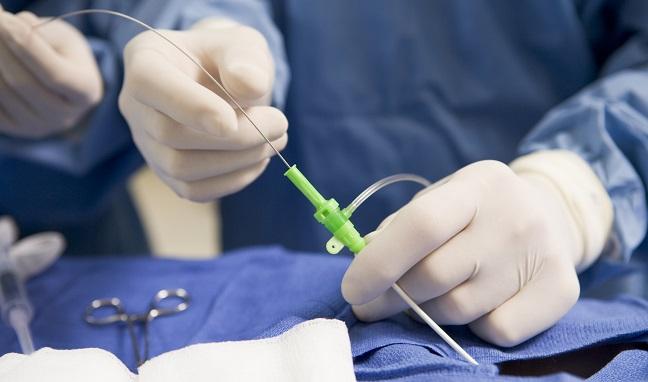The evolving science of Cardiology and its real-world benefits
The evolving science of Cardiology and its real-world benefits
Blog Article
Comprehending the Value of Cardiology in Modern Medical Care Providers
Cardiology plays an essential role in modern healthcare, particularly as heart disease continues to be the leading cause of mortality worldwide. Advancements in diagnostics and treatment have transformed client care, enabling earlier interventions and improved outcomes. The shift towards preventative cardiology encourages people to manage their health proactively. As technology proceeds to advance, the assimilation of ingenious services may further redefine cardiology's influence on public wellness, triggering a closer examination of arising patterns and their implications.
The Prevalence of Heart Condition and Its Effect On Public Health And Wellness
Although heart disease continues to be the leading reason of death globally, its impact expands much beyond specific clients to affect public wellness systems and economic climates. The high frequency of cardiovascular disease places a significant strain on medical care resources, demanding enhanced financing for prevention, recovery, and treatment programs. Public health and wellness campaigns must attend to risk elements such as excessive weight, smoking, and inactive way of livings, which contribute considerably to the climbing incidence of heart conditions.Moreover, the economic problem related to heart problem is enormous, incorporating not only direct medical prices but also indirect costs connected to shed productivity and premature mortality. Neighborhoods encounter challenges in managing these expenses, commonly bring about disparities in healthcare gain access to and results. As the populace ages and lifestyle-related threats proceed to rise, the urgency for effective cardiology interventions becomes critical. As a result, attending to heart problem is not just an issue of specific health and wellness however likewise an essential public wellness top priority.
Advancements in Cardiac Diagnostics and Imaging Techniques
Recent advancements in heart diagnostics and imaging strategies have actually transformed the field of cardiology, enhancing the capacity to identify and check heart conditions. Techniques such as heart MRI, CT angiography, and echocardiography have ended up being increasingly sophisticated, providing detailed pictures of cardiac structures and features. These methods enable the very early identification of problems like coronary artery illness, cardiac arrest, and valvular disorders.Moreover, advancements in non-invasive diagnostics, such as wearable modern technology and remote tracking gadgets, have encouraged individuals and doctor. These devices help with real-time tracking of heart rhythms and various other important indicators, causing timely treatments. Additionally, expert system is being incorporated into imaging evaluation, improving precision and efficiency in medical diagnosis.
Innovations in Therapy Options for Heart Issues
Current developments in cardiology have actually resulted in substantial innovations in therapy alternatives for heart conditions. These consist of advanced medical strategies that enhance step-by-step end results and emerging medicines that supply new opportunities for treatment. As the field progresses, these innovations play an important duty in improving client treatment and end results.
Advanced Surgical Techniques
Innovations in surgical strategies have actually transformed the landscape of cardiology, providing brand-new wish for people with heart conditions. Minimally invasive treatments, such as catheter-based treatments, have actually greatly decreased healing times and health center stays. Techniques like robotic-assisted surgical treatment improve accuracy, permitting doctors to browse complex anatomical structures with greater accuracy. Additionally, improvements in imaging modern technology promote real-time visualization throughout treatments, boosting end results. Transcatheter aortic shutoff substitute (TAVR) exhibits a development in dealing with aortic stenosis, enabling valve replacement without open-heart surgical procedure. In addition, hybrid strategies that incorporate catheter-based and surgical methods provide tailored solutions for various heart concerns. These innovative medical techniques not only boost person safety and security however likewise expand therapy choices, highlighting the vital role of innovation in modern cardiology methods.
Emerging Therapies and drugs
As the landscape of cardiology proceeds to develop, arising medicines and therapies play a pivotal duty in improving treatment choices for heart conditions. Technologies such as unique anticoagulants and advanced lipid-lowering representatives have changed the administration of cardio illness, greatly lowering client morbidity and death. Furthermore, the growth of gene treatments and regenerative medicine supplies promising methods for treating problems formerly considered incurable. Medical tests are constantly disclosing the efficacy of these treatments, pressing the boundaries of typical treatments. The combination of electronic health innovations assists in tailored medicine, enabling for tailored treatment strategies based on hereditary and way of living factors. Collectively, these improvements emphasize the vibrant nature of cardiology, improving client results and redefining requirements of treatment in modern-day medical care.
The Role of Preventive Cardiology in Patient Care
Precautionary cardiology plays a necessary duty in person treatment by concentrating on the recognition of threat variables that contribute to heart disease. Through lifestyle modification techniques and early detection techniques, doctor can efficiently decrease the incidence of cardiovascular occasions - Dr Garcia. This proactive strategy not only enhances person end results yet likewise promotes long-term health
Risk Variable Recognition
While heart diseases remain a leading root cause of morbidity and death worldwide, efficient danger factor recognition functions as a foundation of preventative cardiology. Identifying threat aspects such as high blood pressure, family members, hyperlipidemia, and diabetic issues background is necessary for early intervention. Medical care specialists make use of various evaluating methods to review these aspects, enabling customized preventive actions. Furthermore, recognizing an individual's lifestyle options, such as smoking and physical lack of exercise, further notifies risk evaluations. This comprehensive analysis enables medical professionals to develop individualized treatment plans focused on mitigating threats. By prioritizing danger factor identification, medical care systems can enhance client end results and reduce the general worry of heart diseases, inevitably contributing to improved public health and wellness approaches and resource allowance.
Way Of Living Modification Techniques
A wide variety of researches highlights the crucial function of way of living alteration strategies in decreasing heart disease threat. These strategies encompass dietary modifications, boosted physical task, smoking cigarettes cessation, and weight management. By adopting a heart-healthy diet rich in fruits, vegetables, whole grains, and lean proteins, individuals can lower cholesterol levels and high blood pressure. Regular physical activity strengthens the heart and improves overall cardiovascular health. Additionally, quitting smoking significantly decreases the danger of heart illness and improves recovery rates for those with status quo. Weight administration additionally contributes to cardiovascular health by minimizing various other threat aspects such as diabetic issues and high blood pressure. Executing these way of life changes not just advertises private wellness but additionally works as a foundation of preventive cardiology in patient treatment.
Very Early Detection Techniques
Way of living adjustments significantly add to decreasing heart disease dangers, but they are most reliable when combined with early discovery methods. Preventive cardiology stresses the relevance of identifying possible heart problems prior to they intensify into significant conditions. Techniques such as high blood pressure tracking, cholesterol screening, and progressed imaging innovations like echocardiograms play essential duties in examining cardiovascular wellness. Biomarkers and genetic testing likewise enhance the accuracy of very early detection, permitting for tailored preventative techniques. Normal cardiac danger evaluations equip doctor to intervene proactively, potentially protecting against heart assaults and strokes (Cardiology Jupiter). By incorporating these very early detection techniques right into routine care, individuals can take advantage of timely way of life treatments and targeted treatments, ultimately enhancing end results and enhancing quality of life
Integrating Innovation Into Cardiology Practices
As innovations in technology remain to reshape different areas, the assimilation of innovative tools and systems into cardiology methods has actually come to be important for improving individual treatment and visit homepage end results. Telemedicine systems allow cardiologists to monitor clients remotely, enhancing access to care while minimizing the problem on medical care centers. Wearable tools, such as smartwatches, make it possible for continual heart price surveillance, alerting both patients and physicians to potential issues in real-time. Additionally, expert system (AI) is being utilized to analyze vast quantities of heart information, helping in early diagnosis and personalized therapy plans. Advanced imaging methods, including 3D echocardiography, enhance visualization of heart structures, leading to a lot more accurate treatments. Electronic health records (EHRs) simplify person info administration, guaranteeing that cardiologists have immediate accessibility to critical information. Together, these technical advancements are changing cardiology, advertising proactive monitoring and boosted health and wellness outcomes for people with cardio conditions.
The Relevance of Client Education And Learning and Interaction
Patient education and involvement play a critical duty in the administration of cardio health. By furnishing patients with understanding about his explanation their conditions, therapy options, and way of life changes, healthcare carriers empower individuals to take an energetic duty in their care. This positive strategy can result in enhanced adherence to suggested medications, dietary modifications, and workout regimens, ultimately minimizing the threat of complications.Engagement also fosters a strong patient-provider connection, urging open interaction and trust. When clients really feel educated and entailed, they are most likely to voice issues and ask concerns, which can cause far better professional outcomes. Additionally, educational resources, such as workshops or digital platforms, can enhance understanding and promote self-management techniques. Generally, focusing on individual education and learning and interaction is crucial for boosting cardio wellness, boosting lifestyle, and lowering medical care expenses related to cardio illness.
Future Patterns in Cardiology and Their Potential Impact

Often Asked Concerns
What Lifestyle Adjustments Can Lower Cardiovascular Disease Danger?
The current inquiry addresses way of living modifications that can greatly reduce cardiovascular disease danger. Cardiology care. Adopting a well balanced diet plan, participating in normal exercise, maintaining a healthy and balanced weight, handling stress, and staying clear of tobacco can notably enhance cardiovascular wellness
Exactly How Can I Identify Very Early Signs of Heart Issues?
Recognizing very early signs of heart troubles entails tracking symptoms such as breast pain, lack of breath, fatigue, and irregular heart beat. Timely recognition of these indicators can trigger necessary clinical evaluation and intervention for far better outcomes.
What Are the Distinctions Between Cardiologists and Cardiac Surgeons?
The distinctions between cardiologists and cardiac doctors hinge on their functions; cardiologists primarily manage and identify heart disease through non-invasive techniques, while heart surgeons carry out procedures to fix architectural heart concerns. Each plays a vital, unique duty.

How Often Should I Obtain My Heart Wellness Checked?
The regularity of heart checkup varies based upon private risk variables. Normally, adults should undertake examinations every one to 2 years, while those with status quo might need even more regular assessments as suggested by health care professionals.
What Duty Does Genetics Play in Cardiovascular Disease Threat?
Genetics substantially influences heart disease danger, with familial patterns suggesting inherited problems. Specific genetics can predispose people to hypertension, cholesterol problems, and other cardiovascular issues, highlighting the value of hereditary screening in reviewing heart health and wellness. Heart condition stays the leading reason of death around the world, its impact expands far beyond specific patients to impact public health systems and economic climates. Public wellness initiatives need to address danger variables such from this source as obesity, smoking cigarettes, and sedentary way of lives, which add greatly to the rising occurrence of heart conditions.Moreover, the financial burden associated with heart condition is immense, including not just straight medical expenses however additionally indirect expenses related to lost efficiency and early death. Preventive cardiology plays a vital duty in person care by focusing on the identification of danger aspects that add to heart condition. Artificial intelligence (AI) and device knowing are improving diagnostics and individual surveillance, making it possible for very early discovery of heart diseases. The differences in between cardiologists and heart surgeons lie in their roles; cardiologists primarily diagnose and manage heart conditions through non-invasive approaches, while heart doctors execute medical treatments to remedy architectural heart problems.
Report this page